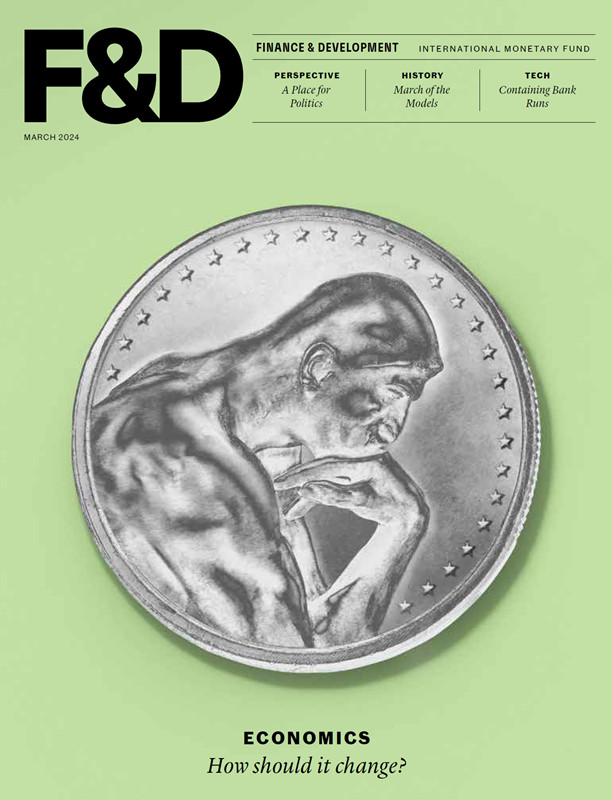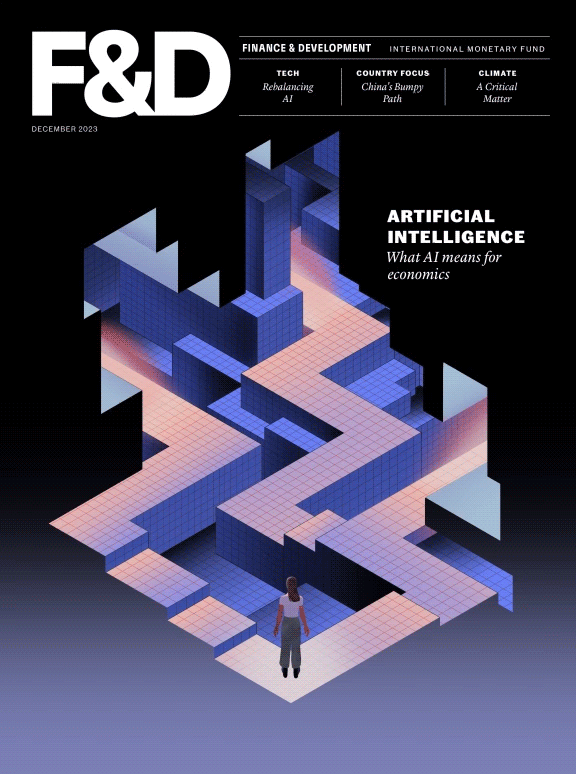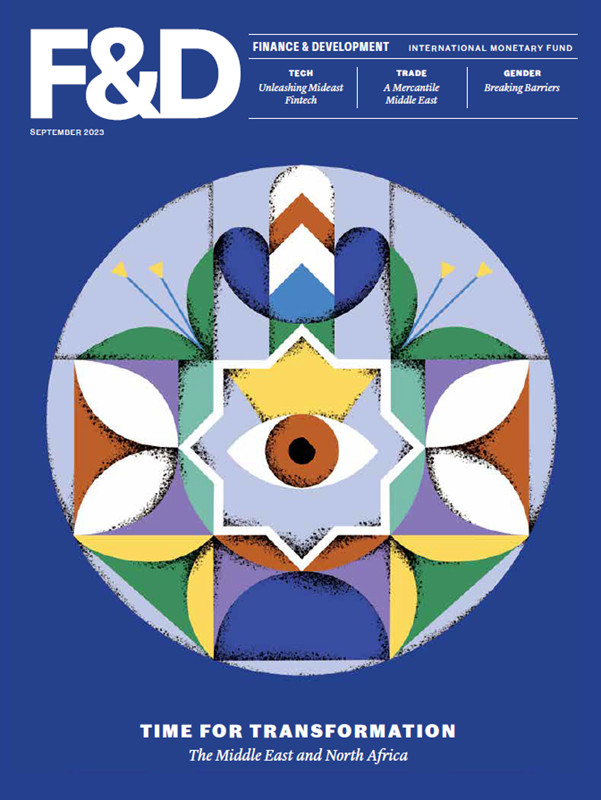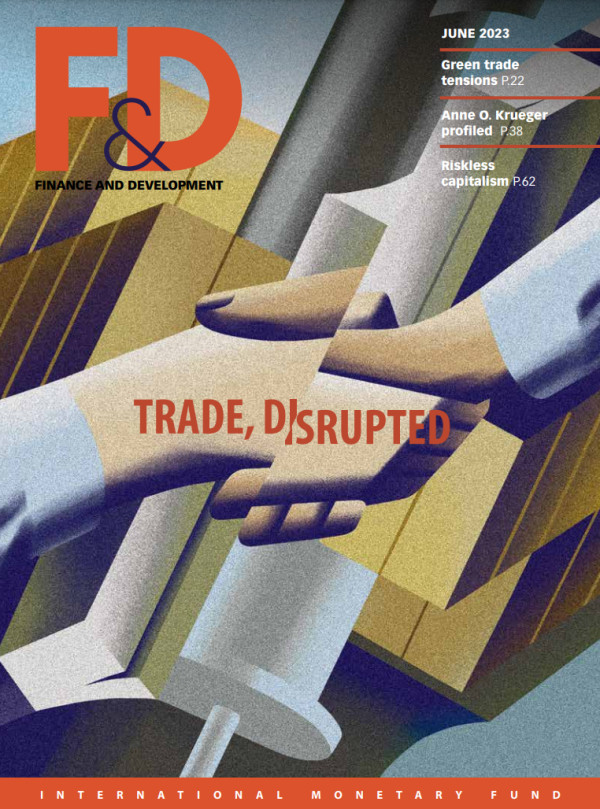Evolutionary moral psychologists point the way to garnering broader support for fiscal policies
Policy decisions on taxation and public expenditures intrinsically reflect moral choices. How much of your hard-earned money is it fair for the state to collect through taxes? Should the rich pay more? Should the state provide basic public services such as education and health care for free to all citizens? And so on.
Economists and public finance practitioners have traditionally focused on economic efficiency. When considering distributional issues, they have generally steered clear of moral considerations, perhaps fearing these could be seen as subjective. However, recent work by evolutionary moral psychologists suggests that policies can be better designed and muster broader support if policymakers consider the full range of moral perspectives on public finance. A few pioneering empirical applications of this approach in the field of economics have shown promise.
The golden rule
For the most part, economists have customarily analyzed redistribution in a way that requires users to provide their own preferences with regard to inequality: Tell economists how much you care about inequality, and they can tell you how much redistribution is appropriate through the tax and benefit system. People (or families or households) have usually been considered as individuals, and the only relevant characteristics for these exercises have been their incomes, wealth, or spending potential.
There are two—understandable but not fully satisfactory—reasons for this approach. First, economists often wish to be viewed as objective social scientists. Second, most public finance scholars have been educated in a tradition steeped in values of societies that are WEIRD (Western, Educated, Industrialized, Rich, and Democratic). In this context, individuals are at the center of the analysis, and morality is fundamentally about the golden rule—treat other people the way that you would want them to treat you, regardless of who those people are. These are crucial but ultimately insufficient perspectives on how humans make moral choices.
Evolutionary moral psychologists during the past couple of decades have shown that, faced with a moral dilemma, humans decide quickly what seems right or wrong based on instinct and later justify their decision through more deliberate reasoning. Based on evidence presented by these researchers, our instincts in the moral domain evolved as a way of fostering cooperation within a group, to help ensure survival (Greene 2013). This modern perspective harks back to two moral philosophers of the Scottish Enlightenment—David Hume and Adam Smith—who noted that sentiments are integral to people’s views on right and wrong. But most later philosophers in the Western tradition sought to base morality on reason alone.
Moral psychologists have recently shown that many people draw on moral perspectives that go well beyond the golden rule. Community, authority, divinity, purity, loyalty, and sanctity are important considerations not only in many non-Western countries, but also among politically influential segments of the population in advanced economies, as emphasized by proponents of moral foundations theory (see box, next page).
Regardless of whether one agrees with those broader moral perspectives, familiarity with them makes it easier to understand the underlying motivations for various groups’ positions in debates on public policies. Such understanding may help in the design of policies that can muster support from a wide range of groups with differing moral values.
Two debates
To be fair, in recent years economists have begun to pay more attention to communities and cultural identities. Consider, for example, two of the most heated and familiar debates in public policy today. The first is the policy response to job losses from automation and globalization. Until recently, economic analyses of long-term unemployment emphasized the need to liberalize markets for labor and housing. If a region lost jobs, economists recommended removing obstacles to moving to locations where new jobs were emerging. This emphasis on individuals’ ability to move paid scant attention to the role of communities in people’s lives. Helping individuals, however, may not be enough if they identify with, and care for, a community that is no longer thriving. In response to pushback against policies that failed to support localities that lost jobs, policymakers are increasingly seeking to support communities left behind.
The second contentious public policy issue concerns immigration, including the extent to which immigrants should have access to publicly funded services. Economists usually analyzed the costs and benefits to citizens or residents while eschewing considerations regarding the preservation of cultural identity for both native and immigrant communities. But to many people, cultural identities are relevant, and the social sciences are paying increasing attention to them.
More generally, the distinction between globalists (or universalists) and nationalists (or communitarians) has become commonplace in public discourse. (Universalists display altruism or trust in others that is unaffected by social distance in terms of links by family, nationality, religion, and so on. Conversely, communitarians’ altruism and trust in others decline with social distance.)
A few pioneering analyses have begun exploring the relationship between people’s moral views and their preferences for policies, including fiscal policies. For example, Enke, Rodríguez-Padilla, and Zimmermann (2020) suggest that the traditional left-right divide—with the left favoring more foreign aid, affirmative action, environmental protection, welfare benefits, and universal health care and the right supporting spending on the military, police and law enforcement, and border controls—is common across several Western countries and ultimately explained by whether individuals’ moral values are primarily universalist or communitarian. Later applications of moral foundations theory have found that communitarians’ opposition to progressive taxation declined among individuals directly hurt by the pandemic through job loss or illness (Klemm and Mauro 2021).
The importance of moral perspectives in shaping people’s views on public policies cannot be overstated. For example, using surveys of individuals in the United States, Stantcheva (2021) shows that notions of fairness are more important than views regarding efficiency in shaping people’s attitudes toward progressivity in the taxation of income or inherited wealth.
Moral Foundations Theory
According to Haidt (2012), six moral foundations have emerged as evolutionary responses:
(1) Care/harm: We as humans are sensitive to suffering and disposed to care for those in need. These feelings evolved in
response to the need to care for children.
(2) Fairness/cheating: We value and reward collaboration and reciprocal altruism, whereas we want to shun or punish
cheaters. Cooperation increases the chances of survival.
(3) Loyalty/betrayal: We reward team players and punish those who betray our group. This is similar to fairness/cheating
but focused on group membership rather than humanity as a whole.
(4) Authority/subversion: We respect rank and status and are sensitive to signs that other people are (or are not) behaving properly, given their position. This evolved in response to the adaptive challenge of living within social hierarchies.
(5) Sanctity/degradation: We experience disgust when observing something that looks polluted (whether physically or
figuratively). We long for purity in nature, feelings, and relationships; we sometimes consider objects, places, people, and
principles as sacred, especially in the context of religion. This likely originated from the need to avoid pathogens.
(6) Liberty/oppression: Humans often cooperate in hierarchical arrangements but band together to rebel against leaders
who behave as tyrants.
On the left, the urge to oppose oppression and replace it with equality is employed against capitalism and corporations.
On the right, such opposition is aimed at government regulations and international treaties.
Whereas the first two foundations are commonplace in the WEIRD tradition and fully consistent with the golden rule, the other four may lead to
treating others differently depending on whether
Further applications of more specific moral foundations could be explored. The purity foundation, for example, applies to preserving nature against local pollution (clean rivers, smog-free air) as well as global pollution (oceans, climate change). A carbon tax could be presented as a way to safeguard the purity of the earth, leveraging sentiments not unlike those elicited by other “sin” taxes such as those on alcohol or cigarettes. People holding communitarian views might be more receptive to arguments that emphasize the purity of their local environment rather than climate change. The purity foundation might even underlie the desire to balance the country’s budget, as expressed in different contexts ranging from the US Tea Party movement to the support for the schwarze Null (“black zero,” or zero deficit) in Germany in recent years. The often-used analogy that compares balancing the budget with putting one’s house in order—making responsible family budget decisions—evokes notions of purity.
Likewise, the loyalty foundation could be leveraged to promote the country’s competitiveness in science, technology, or productivity. Policymakers would be able to draw on the same patriotic spirit that motivates people to root for national sports teams. The authority foundation could be used even in modern democracies, although the choice of figures deserving of respect—police, military, teachers, doctors, the elderly, religious leaders—will of course depend on context, audience, and traditions. A message in favor of, say, additional health spending, might be more persuasive for a conservative audience if delivered by a military doctor in uniform.
The role of information
Policies can be designed and presented more attractively by considering how they would be perceived by people with different moral perspectives. But persuasion also presupposes a certain degree of information, or at least openness to considering information, on the part of the audience.
Extreme positions on policy matters may reflect lack of information, as shown by experiments conducted by psychologists (Greene 2013). These researchers asked individuals to consider controversial policy proposals, such as a single-payer health care system or cap and trade for reducing carbon emissions, and recorded their views. They then asked respondents to explain how these policies would work. Later, the researchers again asked respondents for their views on the policies. Confronted with their lack of understanding, respondents adopted more moderate positions. Thus, rather than asking people why they support a certain policy, a better conversation starter may be to ask them factual questions about how that policy would work. In a similar vein, recent survey-based studies in economics (for example, Stantcheva 2021) ask people for their opinions, then provide them with additional factual information and ask their opinions again to measure how having the facts can reshape attitudes vis-à-vis policies. The results suggest that providing information may in some cases be the beginning of persuasion.
Policy choices in public finance affect the distribution of income, wealth, and opportunities across various groups defined by income; geography; and ethnic, linguistic, and religious characteristics. When considering tax or spending policies, most people focus on their implications for fairness. The analysis may thus be enriched by considering a broader palette of moral perspectives, which may ultimately help policymakers design measures that have a greater chance of mustering consensus. Large-scale empirical studies building on these insights have only recently begun to yield results. Even so, considering how a certain policy may be designed to be more acceptable—and presented in a more appealing way to citizens with different moral perspectives—can be a helpful starting point.
Podcast

Should the rich pay more taxes than the poor? Economists and public finance practitioners have traditionally focused on economic efficiency when answering questions like that, steering clear of any moral considerations that could be seen as subjective.
Opinions expressed in articles and other materials are those of the authors; they do not necessarily reflect IMF policy.
References:
Enke, Benjamin, Ricardo Rodríguez-Padilla, and Florian Zimmermann. 2020. “Moral Universalism and the Structure of Ideology.” NBER Working Paper 27511, National Bureau of Economic Research, Cambridge, MA.
Greene, Joshua. 2013. Moral Tribes: Emotion, Reason, and the Gap Between Us and Them. New York: Penguin Books.
Haidt, Jonathan. 2012. The Righteous Mind: Why Good People Are Divided by Politics and Religion. New York: Vintage Books.
Klemm, Alexander, and Paolo Mauro. 2021. “Pandemic and Progressivity.” International Tax and Public Finance 28 (Supplement).
Stantcheva, Stefanie. 2021. “Understanding Tax Policy: How Do People Reason?” Quarterly Journal of Economics 136 (4): 2309–69.









